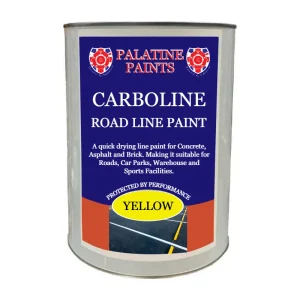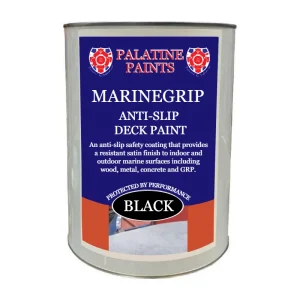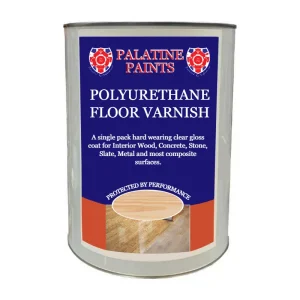All Blogs, Priming and Protecting, Varnish and Wood Oils
Our Guide to Understanding Hardwood Floor Finishes
Hardwood floors are a timeless classic, enhancing the aesthetic appeal of any space with their natural elegance. However, to maintain their charm, they require a protective finish. Choosing the right finish not only preserves the hardwood’s beauty but also significantly impacts the floor’s durability and maintenance needs.
This comprehensive guide aims to help you understand the various professional hardwood floor finishes available, their pros and cons, and how to select the perfect one for your flooring needs.
1. Introduction to Hardwood Floor Finishes
The finish is a crucial element of hardwood floors. It not only enhances the wood’s appeal by highlighting its texture and grain but also contributes significantly to its longevity. It serves as a protective layer, shielding the wood from moisture, scratches, and other damaging factors.
There are several types of professional hardwood floor finishes available, each with its unique properties and aesthetic impact. Let’s delve into each of these finishes to understand their pros and cons.
2. Water-Based Polyurethane
Water-based polyurethane is a popular choice among homeowners for its clear, glossy finish. It dries quickly and has a low odor, making it a user-friendly option.
Pros
- Clear, glossy finish that enhances the wood’s natural beauty.
- Low odor, making it suitable for homes with children or pets.
- Quick drying time, allowing multiple coats in a single day.
- Easy cleanup with just water.
- Environmentally friendly due to low VOCs (Volatile Organic Compounds).
Cons
- More expensive than some other options.
- May require more coats due to lower solid content.
- May need periodic reapplication in high-traffic areas.
3. Oil-Based Polyurethane
Oil-based polyurethane offers a rich, amber glow to the wood that many find appealing. It is also a more affordable option compared to water-based polyurethane, making it a popular choice for many homeowners.
Pros
- Rich, warm finish that enhances the wood’s grain and texture.
- Economical compared to water-based polyurethane.
- Contains higher solid content, providing a more protective finish.
- Requires less maintenance over time.
Cons
- Longer drying time, requiring several days for multiple coats.
- Strong odor during application.
- Can yellow over time, affecting the wood’s natural color.
4. Moisture-Cure Urethane
Initially designed for commercial use in bowling alleys, moisture-cure urethane is incredibly tough and resistant to wear and tear. It provides a glossy finish that can withstand high traffic and moisture exposure.
Pros
- Extremely durable, making it ideal for high-traffic areas.
- High-gloss finish enhances the wood’s appeal.
Cons
- High VOC content, requiring sufficient ventilation during application.
- Difficult to apply evenly due to its quick-drying nature.
- Higher cost than other finishes.
5. Wax
Wax is a traditional finish that has been used for centuries. It provides a low-sheen, natural look to the wood and can be easily touched up.
Pros
- Easy to apply and touch up.
- Low odor and VOCs.
- Quick drying time.
Cons
- Not as durable as other finishes.
- Can yellow or darken over time.
- Requires regular reapplication.
6. Shellac
Shellac is a natural and sustainable product that provides a clear finish. It’s easy to touch up and adheres well to oily tropical woods.
Pros
- Natural, sustainable product with a clear finish.
- Easy to repair or touch up.
Cons
- Very flammable.
- Not as durable as other options.
7. Penetrating Oil Sealer
Penetrating oil sealer is a great choice for those who want to highlight the grain of the wood without adding high shine or gloss. It’s also a preferred option for restoring historic homes.
Pros
- Natural product that enhances the wood’s beauty.
- Soaks into the wood’s pores, helping prevent scratches.
Cons
- Not as durable as other finishes.
- Requires recoating every couple of years.
- More expensive than other options.
8. Acid-Cured Finish
Acid-cured finish, also known as Swedish finish, is highly durable and resistant to chemical damage, scratches, and scuffs. It’s often used on exotic woods or intricate floor patterns.
Pros
- Extremely durable, providing a protective layer on the wood.
- Dries quickly.
Cons
- High VOC content, requiring proper ventilation during application.
- Can take several days to cure.
- Professional application needed due to its flammable nature.
9. Aluminum Oxide
Aluminum oxide is a hard, long-lasting finish that offers excellent protection against wear and tear. It’s often used on prefinished flooring planks.
Pros
- Highly durable, lasting up to 25 years.
- Low maintenance.
Cons
- Difficult to touch up or refinish.
- Only available on prefinished wood planks.
10. Choosing the Right Finish: Water-Based vs. Oil-Based Polyurethane
When it comes to choosing between water-based and oil-based polyurethane, the decision largely depends on your specific needs and preferences. Both offer good protection; however, their appearance and application process differ significantly.
Water-based polyurethane provides a clear finish, dries quickly, and has a low odor. It’s ideal if you want to preserve the natural look of your hardwood floors. Conversely, oil-based polyurethane leaves an amber glow and requires fewer coats but has a strong odor and longer drying time.
Contacting us is easy!
Email: [email protected]
Call Us: 01942 884 122
Contact form: https://www.palatinepaints.co.uk/contact-us
Live Chat Service: Press the small blue icon at the bottom left of your screen.


